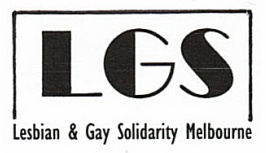


The recent suicides of several gay teenagers have made national headlines. Yet this is the moment – of all moments – that a top Mormon leader decides to broadcast a verbal rampage against gays to millions of viewers.
Boyd K. Packer, the second-highest leader in the Mormon Church, said in a sermon broadcast to millions this week that same-sex attraction is "impure and unnatural" and can be overcome, and that same-sex unions are morally wrong.
Do we need more proof than the suicides of teens as young as 13 that words like these can do unimaginable damage?
We cannot stay silent. By speaking out together, we can show the Mormon Church hierarchy that it has literally risked the lives of children by inciting their tormentors. And we can ensure that the young people who heard this sermon know that it is scientifically wrong and profoundly misguided.
We can’t let Mr. Packer’s statements stand uncontested. Add your name to the open letter to Boyd Packer and let him know his lies carry real consequences.
Speaking before 20,000 people and broadcasting to millions more, Packer said same-sex unions are "against God's law and nature" – and that the church hierarchy would continue to support marriage bans like Proposition 8 (which was funded largely by Mormons).
Comments like these are exactly what makes young LGBT kids think there's no way out but suicide – that their parents will reject them, that their communities will shun them, and that living openly will bring pain or violence – that even God looks on their very identity as a sin to be "overcome."
And these lies fuel the bullying, harassment, and violence that plague our schools.
Packer's lies have been disproven over and over again by science and by the spiritual experience of Americans who know their LGBT neighbors and care about them. We know sexual orientation cannot and should not be changed and that two people falling in love is beautiful, not evil.
Help us speak out so young people understand the truth – and so that Mormon leaders know that spreading this poison puts lives at risk.
Thank you for helping take a stand for the truth.
- The Change.org Team
Article in The Observer sent to us by email:
Carl Paladino, a Republican politician running for governor, is calling for gay people to be barred from teaching in New York, where homophobic attacks are on the rise
By Paul Harris, The Observer(Columbus Day Parade, New York, America - 11 Oct 2010 Carl Paladino has condemned gay pride marches. Photograph: Kristin Callahan / Rex Features-photo not yet available-Ed.)
For Alan Bounville it has felt like a lonely protest. For 16 days he has held a vigil outside the campaign office of Kirsten Gillibrand, a New York senator, holding a sign calling for equal civil rights for gay people.
The 33-year-old New Yorker has suffered the stares of strangers, been ignored by the political target of his demonstration, and endured the harsh cold of sleeping overnight outside on a hard Manhattan pavement. But a series of brutal attacks on young gay men, a number of tragic suicides and alarming anti-gay public statements by Republican politicians have led Bounville to feel he has no choice. "Our people are dying. So I am just going to sit and protest. That is my job," Bounville said.
Liberal America has looked on aghast as virulent homophobic prejudice seems to have returned to its streets and cities. Most remarkable of all, much of it seems to be centred on the New York region, usually tolerant in its politics and not seen as hostile to homosexuals living openly. But it was just a few miles away from Bounville's protest in the Bronx that a group of suspected gang members brutally beat and tortured a 30-year-old gay man and several other youths who had been associated with him. The details of the assault, for which 10 people have been arrested, horrified New Yorkers. The gay victim was kidnapped, beaten, whipped and burned.
The shocking crime was just one of a series of incidents that have hit the city. Others have even occurred in the heart of New York's vibrant gay scene. In the Chelsea neighbourhood, which has a large gay population, a group of men hugging each other goodbye after a night out were punched and had a rubbish bin thrown at them. Meanwhile in the famous Stonewall Inn, where the modern gay rights movement was founded after a police raid in 1969, a customer was beaten and robbed by men who hurled homophobic insults at him.
For many observers the violence has been especially worrying as it has come at the same time as several leading Republicans have made anti-gay statements. South Carolina's Senator Jim DeMint, one of America's most powerful Republican politicians, has publicly said that gay people should not be allowed to become teachers.
Those sentiments were echoed by the Republican candidate in the New York governor race, Carl Paladino. In an astonishing piece of political theatre at a meeting of conservative Orthodox Jews, Paladino condemned gay pride parades and said gay people should not teach in schools. When the comments stirred outrage in the media, Paladino went on the talk show circuit in New York to complain about men "grinding" against each other at marches while wearing Speedos. "Is that normal?" he asked one TV interviewer.
The remarks were so bizarre some observers dismissed them as just another gaffe from a candidate dogged by allegations of infidelity and sending pornographic images by email. But gay rights activists say that is a mistake. There is a direct link, they say, between such public statements of homophobia and attacks. "These comments give licence to those who use violence. It is dangerous. It is tragic to think these hateful kinds of words have consequences," said Michael Cole, a spokesman for the Human Rights Campaign, which campaigns for gay rights in America.
Such sentiments do not just encourage violent attacks; they can also spur people to suicide. Recently a student at Rutgers University committed suicide after his room-mate broadcast one of his gay sexual encounters over the internet. In Oklahoma recently a 19-year-old man killed himself after attending a local council meeting where members of the public had spoken out against celebrating the local gay community. The family of Zach Harrington, who committed suicide at home, told their local newspaper in the small town of Norman that they believed the "toxic" environment of the meeting had pushed him over the edge.
Yet the rash of violence, deaths and homophobia has actually come against the backdrop of a series of legal and political advances in gay rights. The longstanding "Don't Ask, Don't Tell" ban against gay people serving openly in the US military has suffered a series of legal defeats and President Barack Obama has committed himself to revoking it. In Florida a recent court case allowed gay people to adopt children.
"Things are moving faster and in more unpredictable ways then we could have thought even six months ago," said Julie Shapiro, an expert on the legal struggle for gay rights at Seattle University. History, she said, was on the side of equality and that was making homophobic people more anxious. "They will land up where the white supremacists landed up. Fifty years ago it was OK to oppose inter-racial marriage. Now they are marginalised," Shapiro said.
Bounville has a simple thought when he hears statements such as those made by Paladino. "People like him are the new Ku Klux Klan," he said.

This very moving video clip was sent to us by email. It was posted in a week in which the number of young, mostly gay males, committed suicide in the USA, where the number of such suicides has grown at an alarming rate in a country where homophobia is reaching new depths:
http://tv.gawker.com/5663083/this-is-the-most-touching-it-gets-better-video-you-will-ever-see

Sent to us by email - an article in the New Yorker:
In the past few weeks, it has been easy to forget that Americans are becoming more accepting of gays and lesbians and of their rights to equal citizenship. This month, we heard about Tyler Clementi, an eighteen-year-old Rutgers University freshman who threw himself off the George Washington Bridge after his roommate used a Webcam to broadcast, live online, Clementi making out with a male date. His suicide followed those of Billy Lucas, aged fifteen, of Greensburg, Indiana, and Seth Walsh, thirteen, of Tehachapi, California, both in September, and preceded by a day that of Asher Brown, thirteen, of Houston, Texas. All three boys had reportedly been victims of anti-gay bullying.
On Saturday, October 9th, readers of the Times woke up to a front-page story about the abduction of three men in the Bronx and their subsequent torture at the hands of members of a gang called the Latin King Goonies. The Goonies appear to have targeted the three, two of whom were seventeen, because they had pegged them for gay.
And then we had the remarks of Carl Paladino, the Republican gubernatorial candidate in New York, who said in a speech before Orthodox Jewish rabbis that children should not be “brainwashed” into thinking that homosexuality is “an equally valid and successful option.” Given an opportunity to elaborate on “Good Morning America” and the “Today” show, Paladino described gay-pride parades as “disgusting”; denounced his rival, Andrew Cuomo, for taking his children, aged twelve and fifteen, to the gay-pride parade in New York City; and declared his hostility to same-sex marriage.
You don’t have to argue for any kind of equivalency between, say, the lynching of three gay men and the intemperate remarks of a politician to acknowledge that, in the use of a word like “disgusting,” something ugly and fundamental is being revealed, the id in the ideology.
And yet there is plenty of evidence that Paladino-like sentiments are in eclipse. Partly, this is a function of generational replacement. People now in their teens and twenties are far more likely to endorse same-sex marriage than are older cohorts. And partly it’s a function of the direction in which people tend to move on gay-rights issues: when they change their minds, they most often change them from opposition to support.
A recent study conducted by Robert P. Jones, of the Public Religion Research Institute, shows that one in four Californians has become more supportive of gay rights in the past five years. (Only eight per cent have become more opposed.) A slim majority, fifty-one per cent, say that they would vote to allow gays and lesbians to marry. (In 2008, Proposition 8, the California referendum that banned gay marriage in the state, passed with fifty-two per cent of the vote.)
Polls show that Americans have also become steadily more critical of the military’s Don’t Ask Don’t Tell policy. According to an ABC News/Washington Post poll conducted earlier this year, seventy-five per cent of Americans think that gays and lesbians should be allowed to serve openly. (The same poll showed sixty-two per cent in favor in 2001, and forty-four per cent in 1993.)
Sympathy for the right to marry and other civil rights tends to go along with a growing acceptance of the proposition that homosexuality is not a choice but something close to inborn, making it more like race or gender and less like the breezy life-style “option” that Paladino’s remarks suggest. And the connections between religiousness and views on gay rights are becoming less predictable.
Younger evangelicals are more open to gay rights than older evangelicals are, and the Jones poll shows that a solid majority of Latino Catholics in California now support the right of gays and lesbians to marry, while only twenty-two per cent of Latino Protestants do.
But the more that acceptance wins—and it is winning—the more angry obstructionism we’ll see from people who still can’t accept it. Clearly, tolerance has hit a few snags, some more serious than others. According to some data, hate crimes targeting gays have increased in the past two years. Certain opponents of same-sex marriage feel emboldened to unleash harsh rhetoric. On October 3rd, Boyd K. Packer, who, at eighty-six, is the second-highest leader in the Mormon Church, proclaimed, “Some suppose that they were born preset and cannot overcome what they feel are inborn tendencies toward the impure and unnatural.” (Beware the hatred-licensing power of words like “impure” and “unnatural.”)
And the Senate still hasn’t repealed the Don’t Ask Don’t Tell law, despite a ruling in September by a federal judge, Virginia A. Phillips, declaring it unconstitutional, and her injunction last week ordering the military to stop enforcing it. (The Obama Administration chose to appeal last week’s decision, preferring to have Congress, not the courts, rescind the law.)
But one snag has nothing to do with homosexuality itself, and that is the comprehensive undermining of privacy. This is the trap into which Clementi, and perhaps some of the other teen-age suicides, fell. Clementi lived in a world where filming your roommate in his most intimate moments and broadcasting the results without his knowledge represents a difference in degree, if not in kind, from a lot of online behavior.
The roommate does seem to have been motivated in part by the fact that Clementi was gay. (He tweeted that he had “turned on my Webcam. I saw him making out with a dude. Yay.”) But what he did, with the help of a female freshman friend, would not have been any more defensible if he had been broadcasting Clementi in an intimate moment with a girl.
The problem is a culture of exposure that is far more advanced than any efforts to combat online cruelty. Bullying feeds on weakness, anger, and, lately, the systematic undervaluing of privacy. (Paladino, by the way, has had his own problems with boundaries. He has admitted to forwarding e-mails depicting bestiality and recounting racist jokes that some people find as disgusting as he finds gay-pride parades.)
Young people discovering their identity and their desires need a zone of privacy where they can be who they are, perhaps in the company of another human being, without feeling that somebody else might be tweeting it, filming it, or blogging about it, or that maybe they themselves ought to be—there’s such a thing as violating your own privacy, too. The unobserved life is so totally worth living. ?

In a fairly extensive and wide-ranging interview, she does not mention these groups of young people who it seems are most at risk of suicide or suicidal ideation and are those who are coming to terms with their developing sexuality, who may live in rural or regional areas or even in big cities such as Melbourne and Sydney and are unable to find out how to make contact with people or organisations which can help them in their life's dilemmas.
To sum up this interview, it is a total waste of time for young GLTH people looking for urgent help and advice. It is a shame it was given such prominence without intervention from the interviewer - the writer of the article.
Dr Jane Burns talks with Michael Short about teen suicide
Young people continue to take their own lives. Jane Burns says this terrible situation won't change unless we realise youth suicide is not a taboo subject and is talked about openly and often. She speaks to Michael Short.
The pain caused by the suicide of a young person is almost too terrible to imagine, certainly too terrible to be adequately described. Words so often elude us here. But we need to talk about youth suicide, not avoid it in the misguided belief that keeping it taboo somehow shelters people in difficulty from dangerous thoughts. Only through appropriate discussion can we cement the crucial concept that young people have many options - and suicide is not one of them.
• Live chat with Dr Jane Burns here for an hour from noon today. Leave questions hereDr Jane Burns is in The Zone to help all of us talk about it (the full transcript of our conversation is at: theage.com.au/opinion/the-zone). This mother of three young children can be seen as a crusader for young people, a researcher who broke with traditional academia to work with the young to give them tools and knowledge to confront and combat life's inevitable difficulties.
''There are ways of talking about it that are better and there are ways of talking about it that are actually bad. And we want to make sure that we don't do the bad things. So, we don't want to glorify suicides. We don't want to provide young people with ideas about how they could take their own lives. And there are very clear media guidelines around that.
''But what's happened with the use of the guidelines is that somehow we've come to a thinking that we must not talk about suicide, and I think we need to differentiate those two things so that we do talk about the things that matter. And the things that matter are: promoting better mental health for young people; getting help earlier; making sure young people feel valued and connected, so that they don't feel suicide is an option for them.''
When a young person takes their own life, it is a desperate reaction to either a long-running issue or to a traumatic event. It is crucial to understand that in the overwhelming majority of cases, mental health problems are involved.
This is where Jane Burns can best help us. As many as one in four young people experience mental health issues such as depression, anxiety, eating disorders, problems with drugs and alcohol and the less common mental illnesses of bipolar disorder and psychosis.
While suicide rates have declined in the past decade, the rate of mental health disorders has not changed. It is a key reason why suicide is the leading cause of death for young people aged 15-24. In an average year 12 classroom, one person has attempted suicide.
''What we'd like to see is a continuing decline in youth suicide rates. We would also like to see a decline in things like youth violence, drug use and alcohol use. They're big, big, big things to shift. So, the things that we believe we can shift in the short-term are things like help-seeking . . .
''At the moment, 11 per cent of young men seek help. It's pretty dismal. We'd like to see that increase. About 30 per cent of young women seek help, so it's still pretty low.''
Burns is a driving force behind an initiative that aims to reduce suicides among young people. She has successfully applied to the federal Department of Innovation for $27 million to set up an organisation that will bring together academics, mental health professionals, young people, technology companies and not-for-profit organisations.
Called the CRC [Co-operative Research Centre] for Young People, Technology and Wellbeing, it will involve more than 50 organisations. Burns will be chief executive: she has had much experience in the field, including helping establish beyondblue and as director of research and policy at the Inspire Foundation, which helps young people lead happier lives. The promotion of happiness and wellbeing is fundamental to helping young people develop resilience. Burns is keen to shift the focus away from the difficulties young people undergo.
''You see success stories in the young people we work with - hundreds of young people. The stories are up on the [mental health] reachout site. There are stories of young people who've gone though really difficult, traumatic experiences, and come out at end of it saying 'you know, I'm actually doing really well'.
''It doesn't mean they're going to be happy-clappy all the time, because that's not what life is about and we all know that. But it means that when they do go through a really difficult, challenging time, they know where to pull on the resources that they need, whether it's a resource that's online or whether it's talking to a friend, or going to a parent, or going to a professional or going to a teacher. It doesn't matter. It's about saying you deserve to get the best type of care you need and you deserve to be supported in your happiness.''
Burns and her team are going to capitalise on technology to get the information and tools to the people who need them: young people, parents, carers and health professionals.
''Technology affords you the opportunity to reach thousands of young people at any one time without a young person having to come in and sit down and go through that face-to-face one-on-one.''
Burns is empowering young people not only to seek help for themselves when necessary, but to be able to help their friends.
A common conundrum is whether to break a confidence.
''One of the big issues that constantly comes up is 'I'm breaking a confidence; I promised I wouldn't tell anyone what was going on, I'm going to break the confidence and I don't know how to deal with that'. So we've got information about what's more important - breaking the confidentiality or keeping someone safe.
''What would you rather see; your mate happy, healthy, doing well or you feeling that you kept that confidence?''
Burns's advice to us all is to talk, to investigate and to seek help when needed. Taking the first step on that path to help - and to happiness and peace - has become pretty easy. Just explore some of the links below, and you're on your way.
''Young people know when someone is doing it tough. They actually know the symptoms of depression. They know when a mate's drinking is out of control. They're not silly. What they're really telling us they're struggling with is how to make the step from knowing what's going on for a young person who's struggling and then knowing how to take that step to almost sort of lead them to help, to get help and to get help at the right time.'' The lead organisation in Burns's CRC, the Inspire Foundation, has written a declaration that gives us a fine way to start a conversation with our kids.
Our dream/ is for a world where every young/ person can stand up and say:/ I am a young person./ I am loved and I love./ There lies before me a land of endless/ Opportunity where I can learn and grow./ There lies within me a limitless ocean of/ Compassion and kindness./ I respect all people, including myself,/ For who we are.
I celebrate our common humanity and/ I honour our individual differences./ I show up for life each morning ready for whatever comes my way./ I give my best and know it will make all the difference./ I am making my world a better place./ I am happy.
Support is available for anyone who may be distressed by calling:
From Care2 online:
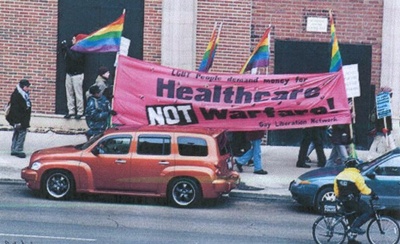
Research came out this week from the Centers for Disease Control and Prevention (CDC) indicating that GLBTQ young people are shockingly underserved, and facing health risks on every front.
Across the nine sites that assessed sexual identity, the prevalence among gay or lesbian students was higher than the prevalence among heterosexual students for a median of 63.8% of all the risk behaviors measured, and the prevalence among bisexual students was higher than the prevalence among heterosexual students for a median of 76.0% of all the risk behaviors measured.
Breaking it down to just a few of the numbers, that means gay and lesbian youth are more likely to:
• Have been injured in a physical fight (5 times more likely)Our youth are also less likely to eat their vegetables and more likely to smoke. More likely to take diet pills. Less likely to wear their seatbelts.
In essence, the report says: we are treating an entire generation of GLBTQ young people as if they don't matter. Sex education programs ignore these youth, or at best, at worst, vilify them. They're told their very existence is so vile that teachers can't talk about them.
Presidential candidates build support by saying our culture must be protected from them. Meanwhile, only thirteen states even asked about sexual identity or sexual contact on the Youth Risk Behavior survey. The others consider the topic too challenging, too....risky.
These youth are assaulted at school and molested at home. They fear school. They have unprotected sex and inject drugs. They are homeless. They try to kill themselves (they succeed).
You know the saying: Measure a society by how it treats its most vulnerable? Our society is failing.
It's more than marriage equality, ending bullying, ending hate speech. Those are all worthy goals. Those are basic rights denied to GLBTQ people. But what this report makes clear is that on a fundamental level our GLBTQ youth are being devalued. We do not care enough to protect them from violence, suffering, and danger. And knowing they are devalued, they devalue themselves and their health and lives.
Undoubtedly conservatives will take this information and use it to point out to GLBTQ youth (again) that they're the problem - they're flawed, they need fixing. But you know and I know that it's not true. Adults in power, and a hateful culture, are the ones at fault here, and also the only ones who can fix it.
Will we find the will, to change our schools, communities, homes, churches, leaders?
Or will we continue to allow malevolent neglect to rule these young people's lives?
This post first appeared on the blog of RH Reality Check.
Received by email from LGBTQ Nation:
TORONTO — Egale Canada — the Canadian national LGBT human rights organization — has written to the Chief Coroner for the province of Ontario, Dr. Andrew McCallum, requesting a full coroner’s review on the issue of LGBTQ youth suicide.
Helen Kennedy, Executive Director of Egale, said that the recent news out of Ottawa of the death of 15-year-old Jamie Hubley is “deeply upsetting.”
On Oct. 14, Jamie took his own life. He had battled with depression, endured bullying and vicious taunts in school, and wondered how it could possibly get better for a gay teen like him. His death has put homophobic bullying in the nation’s schools under intense scrutiny.
“We don’t know what ultimately led Jamie to the harrowing act of suicide. We do know that his struggles have been shared by far too many youth across Canada,” said Kennedy.
“Shaquille Wisdom was 13 when he committed suicide in October 2007, in Ajax, Ontario. Jeanie Blanchette was 21 and Chantal Dube was 17 when their lives tragically came to an end in Orangeville in October 2010. All of these youth were gay, and all of them faced suffering that no youth should ever have to confront. And yet, with every life we lose, we mourn and we move on. We say that it gets better, but what are we doing to make it better?”
Suicide is the second leading cause of death among youth in Canada.
In 2008, 458 Canadians between the ages of 10 and 24 took their own lives (Statistics Canada). Suicide rates among lesbian, gay, bisexual, trans and questioning youth are 4 times higher than among their non-LGBTQ peers, according to a 2009 Youth Risk Survey.
In its request, Egale Canada has asked the Chief Coroner to conduct a review of the issue, with a particular focus on four questions:
Where are current support systems failing and how can they be improved to end the tragedy of youth suicide?“Our communities, our families and our schools must not endure the loss of another cherished life,” Kennedy said. “This review will help to ensure that it really does get better, starting today.”
Unlike in the United States, where the coroner serves mostly as a medical examiner, in Canada, the chief coroner makes and offers recommendations to improve public safety and prevention of death, particularly in circumstances of unnatural, unexpected, unexplained, or unattended deaths.

From GLBTQ NATION:
ASHLAND CITY, Tenn. — Students at a local school are grieving a classmate. Friends say the young man took his own life because he couldn’t take any more bullying.
And they say school officials knew about the torment but didn’t do enough to stop it.
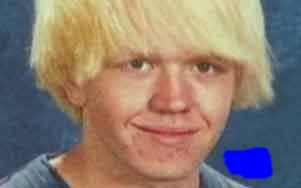
Friends say that kids bullied Jacob Rogers at Cheatham County Central High School for the past four years, but in the past few months it had become so bad he dropped out of school. And Wednesday, he ended his life.
“He started coming home his senior year saying ‘I don’t want to go back. Everyone is so mean. They call me a f****, they call me gay, a queer,’” friend Kaelynn Mooningham said. Kaelynn said her friend Jacob felt ignored.
“Jacob told me no one was helping him. He constantly was going to guidance,” she said. But Cheatham County Schools Director Dr. Tim Webb said the school was only aware of one incident of bullying.
“She actually intervened and called the students in accused of bullying or picking. She called them in, talked to them and gave them warnings. Subsequently after that, she ran into the student and asked him if things were better and he indicated that things were better,” Webb said.
But Kaelynn knows that Jacob wasn’t OK. Things were still so bad around Thanksgiving that he ultimately quit going to school.
“No one would listen and stand up for him,” she said.
Brentwood attorney Larry Crane has worked on several cases involving bullying where schools failed to do enough.
“Federal government is taking a closer look at these cases,” he said.
And now, those like Kaelynn are wondering when is enough, finally enough? “It just doesn’t have to make sense. How many kids have to die before Cheatham does something,” she said.
Kaelynn says Jacob lived with his grandmother who primarily took care of him. She found a couple notes that Jacob left for her. In those notes Jacob left passwords to his email and his phone so investigators could determine why he chose to kill himself.
As for Cheatham Central, counselors will be on hand again Thursday for grieving classmates. Friends of Jacob’s family say they likely don’t have enough money to hold a funeral.
Donations for a funeral are being accepted at Sandman’s Ink Shop, a local tattoo shop in Ashland City.
From LGBTQ NATION
GORDONSVILLE, Tenn. — Another gay teen has been lost to anti-gay bullying — Phillip Parker, 14, died on Friday, the victim of an apparent suicide.

Phillip’s parents and grandparents found his body Friday afternoon, minutes later they found a handwritten note in his trash can that read “Please help me mom.” His parents said Phillip was constantly bullied because he was gay.
WSMV-TV reports:“He was fun, he was energetic, he was happy,” said Gena Parker, Phillip’s mother. To his many friends, Phillip was known as the boy who told everyone they’re beautiful. “He kept telling me he had a rock on his chest,” said Ruby Harris, Phillip’s grandmother. “He just wanted to take the rock off where he could breathe.”
Phillip’s family said they reported their concerns over their son’s bullying to Gordonsville High School on multiple occasions, but the bullying by a group of students just got worse. “I believe my whole family up in heaven’s taking good care of him,” said friend Megan Redinger.
“I want to say I love him dearly,” added friend Heather Hunt. “He’ll never be forgotten. He’s always in my heart.”
“That’s my son,” said Phillip Parker, Phillip’s father. “I love him. I miss him. He shouldn’t have had to kill himself to be brought to life.”
Phillip’s parents said that students at Gordonsville High school have bombarded them with information since Phillip’s death — more than hundred teens told them the bullying was obvious, and some said they went to teachers about it.
“Because he was gay, he got mistreated physically, mentally by several people out there at the school, and I am very resentful as a result of it,” said Phillip’s grandfather, Paul Harris. WSMV reported that more than 100 people gathered on Saturday night to grieve for the loss of Phillip.
Phillip’s parents plan to meet with Gordonsville High School officials on Monday morning, and a spokesperson at Smith County Schools said they are now planning how to address the situation with students. Meanwhile, friends have launched community page on Facebook in memory of Phillip.
The Tennessee Equality Project (TEP) Upper Cumberland Committee has announced it will hold a candlelight vigil in Cookeville, Tenn., on Thursday, January 26 at 8:00 p.m. in memory of Phillip and other victims of bullying, including Jacob Rogers, a gay teen from Ashland City who took his life in December.
The event will take place at the Courthouse Square — candles will be provided, and participants are asked to bring their own signs.
According to Beth Thompson of the TEP Upper Cumberland Committee, “While not only youth who identify as LGBT are targets of bullies, they have been found to be up to four times more likely to attempt suicide than their heterosexual peers, according to the Massachusetts 2006 Youth Risk Survey.”
The event is designed to show support for LGBT youth while the Tennessee General Assembly continues to debate legislation such as the “License to Bully” bill, the “Don’t Say Gay” bill, and the transphobic “Bathroom Bill,” all of which have drawn national scorn from LGBT advocates.
Editor’s Note: If you or someone you know needs support, please don’t hesitate to call the Trevor Project‘s Lifeline at 866-488-7386.
From LGBTQ NATION:
The bullying of LGBT children has become a common theme of late, with state governments around the nation addressing this controversial topic.
Just this past Friday, Phillip Parker — a 14-year-old boy from Tennessee — took his own life because of the constant harassment and degradation that allegedly went unaddressed by school officials.

Countless others have taken their lives over the past few years, because of the torment that their fellow students inflict upon them because of their sexual orientation or perceived sexual orientation.
In response too many of these tragic deaths, religious individuals across the nation have decided that instead of addressing the topic of LGBT bullying directly (a.k.a. punishing the bully), it is the fault of those students who are LGBT that they are being bullied. These people assert that if those students would be “normal” (straight), they would not be bullied. But because these children have “chosen” to be gay, it comes along with the territory that they would be bullied for that “choice.”
To these individuals, the increased rates of suicide, depression, and substance abuse of LGBT teens is a direct consequence of their choice in sexual orientation.
Because they believe that there is something inherently disordered about a homosexual sexual orientation or a differing gender identity, they “logically conclude” that such a disorder has other consequences — a gay kid commits suicide, not because he is bullied because of his sexual orientation, but because he knows that there is something intrinsically wrong with him. That the tormenting words of the bullies are true, that he is a “fag” and that he somehow made the choice to be one.
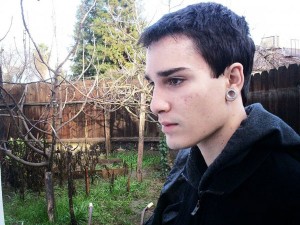
The psychological torment associated with such a belief drives many LGBT children to depression and even suicide.
When you are told that you have chosen something inherently disordered, yet do not even recall making that choice, you start to believe that there is something wrong with you; that you are “damaged goods”. To these children, there seems to be no hope, because no matter how hard they try, they cannot change the feelings and attractions that they have. I know what the kids feel, because I have been there.
From my first recollection of having a “crush” (I was six, so I don’t know if crush is the best word) on the tour guide at Disney world, I knew that I was different. Though I was home schooled, and thus escaped much of the daily harassment that LGBT children go through, I was exposed to some through sports leagues.
I was told I was a sissy, a girl, and made fun of for sitting with my legs crossed (and this was in a religious league). I have known the hopelessness of being told that something was “wrong” with me, and that I was living in rebellion. I have tried to change my sexual orientation (8 months’ worth of trying), and could not make myself “normal.”
I barely escaped with my life, some days just wanting to end it all because I could not live with myself, knowing that I was gay, yet trying to come to grips with the messages that were being flung at me by my religious community, my family, and my friends.
In my last post, I discussed the notion of power when it comes to rights, responsibilities, and protections of vulnerable minorities. The new tactic by religious leaders, state legislators, and religious individuals of blaming the victim for anti-gay bullying ties well into this power framework.
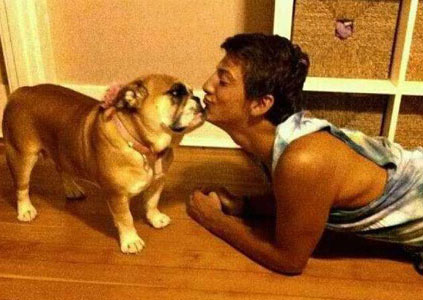
If these individuals recognize that such bullying exists and that it must be addressed, their very conception of homosexuality and gender identity as “disordered” and “sinful” must also be addressed.
No longer will it be appropriate to tell these children that they made the choice to be gay and that they must live with the consequences of such a disordered choice, for instead such children will need to be protected and validated. Such validation goes against the entire pyramid of Judeo-Christian superiority, where ‘traditional morals’ must be enforced even if such morals destroy the lives of countless children, families, and churches.
Thankfully, the American public is waking up to the fact that bullying, no matter if it is because of ones’ sexual orientation, weight, race, or creed, is wrong. They know that the fault for bullying lies not with the victim, but instead with the oppressor.
And it is because of this that I know that the virulent rhetoric of fundamentalism, which blames the oppressed instead of the oppressor, is increasingly falling on deaf ears.
But till such voices are finally regulated to the fringe, I must ask — how many children must we lose before the American people fully recognize that being bullied because of one’s sexual orientation is wrong?
About the Author:
Kyle Luebke, is a political science major at the University of Memphis.
For more by Kyle Luebke, visit his blog at An Enduring Vision.Opinions and advice expressed in our Views & Voices columns represent the author's own views and not necessarily those of LGBTQ Nation. We welcome comments and editorials of opposing views and diverse perspectives. To submit an article or editorial, contact us here.

From New Civil Rights Movement:
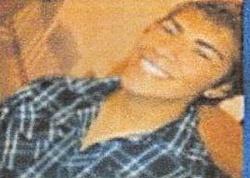
Police say they are unaware that bullying was a factor in the January 29 suicide death of 14-year old anti-gay bullying victim Rafael Morelos. A vigil honoring Morleos was held Friday night in his hometown of Cashmere, a small town of 3060, near Wenatchee, in north central Washington state.
Dee Riggs, a reporter at the Wenatchee World, writes that Sheriff Brian Burnett of the Chelan County Sheriff’s Office “investigated the case and determined that it was a suicide and there was no foul play involved.”
“You’re the first one who ever indicated to me that he had been bullied,” Burnett told Riggs via telephone.
Lt. Maria Agnew said earlier this week that bullying “did not come up in the investigation and there is no evidence that would support that right now.”
She said the investigation is closed. Burnett said it would only be opened if the school or family presented evidence of bullying.
Malinda Morelos, mother of Rafael Morelos, shares her concerns about bullying at the candlelight vigil.
Rafael’s mother, Malinda Morelos, said during an interview Thursday afternoon that she did not hear that her son was bullied until a candlelight vigil Tuesday near their home on Eels Road in Cashmere.
“Almost all the kids here told me he was being bullied,” she said. “There were at least 100 people at the vigil.”
She said her son kept his feelings to himself and “he pretended everything was OK.” She said she has known her son was gay for several years.
She said Rafael left a short note before he died that said, ‘Sawwy, guys, but I love you guys.”
At the vigil, Malinda said her son, “sometimes acted strong but, inside, he was dying little by little.”
Riggs also notes:
“He told me he got shoved and punched in the face in PE in the locker room at Cashmere,” said Lexii Mullin of Wenatchee, a friend of Rafael Morelos.
“He was tired of people saying that his little brothers would follow in his footsteps and be gay too,” said Maranda Blankenship of Wenatchee.
Q13 News, which has a video report, adds:
Last year, the state ordered school districts to toughen their policies when it comes to online bullying.
That move came after state education officials said nearly 15,000 students were suspended because of bullying in the 2008-2009 school year.
On February 1, the Washington state senate voted to approve a same-sex marriage bill. One senator was especially expressive in his comments opposing the bill, claiming it would “create a hostile environment for those of us who believe in traditional marriage.” Republican Senator Dan Swecker also added same-sex marriage would “lead to the silencing of those who believe in traditional marriage.”
Morelos is the fourth anti-gay bullying teen to die by suicide this year that we know of. Sadly, no doubt there are many more. Earlier this year, Phillip Parker of Tennessee, Eric James Borges and Jeffrey Fehr, both of California, all succumbed to suicide after anti-gay bullying this year.
The Trevor Project provides crisis intervention and suicide prevention services to lesbian, gay, bisexual, transgender, and questioning youth. Call them 1-866-488-7386. You can also call the National Suicide Prevention Lifeline at 1-800-273-8255 and visit stopbullying.gov, and the Gay, Lesbian & Straight Education Network’s (GLSEN) website for more resources.

From LGBTQ NATION:
ROCHESTER, Minn. — An openly gay teen in Rochester, Minn., took his own life on Sunday, and according to the boy’s father, anti-gay bullying played a “a big part” in his son’s suicide.
Shortly before midnight on Sunday, Jay “Corey” Jones, a 17-year-old student at Century High School, jumped off a pedestrian bridge near his school in Rochester and died, reported the Rochester Post-Bulletin.
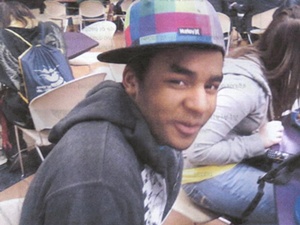
Last year, Corey told his father, Jay Strader, he was gay. Strader said he immediately noticed a positive change in Corey.
“I just saw a difference in him, I saw a smile, I saw a little more energy than actually being down and out and depressed-looking,” Strader said. “To me he felt a sign of relief, like, ‘Yeah I got over the hard part, right,’ you know.”
But coming out exposed Corey to other pressures, Strader told Minnesota Public Radio, primarily from bullies at school.
Strader said the teasing Corey encountered at school was a constant struggle for his son, and he was diagnosed with depression.
“He said all of his life they always picked on him,” Strader said. “He’d still try to keep his head up at school, but then he’d come home and be really sad about it.”
Corey was a member of Century High School’s gay-straight alliance, and the cover photo his Facebook page read, “Gay & Proud.”
The school’s Superintendent Michael Muñoz issued a statement acknowledging there have been issues related to bullying in the district, but did not directly address Cory’s situation.


From The Age:
On his last day as a Victorian policeman, Michael Maynes wrote a gracious farewell email to his "passionate and supportive" colleagues.
The young man's civility stood in stark contrast to the years of vicious harassment he had suffered due to the actions of some of his former police colleagues.
The torment had included false and professionally damaging allegations, nearly 400 alleged searches of Mr Maynes' name, address and housemates in the police database, and homophobic taunts.
Mr Maynes was openly gay to his family and friends, but he had not "come out" in his work as a police officer.
What started as coaxing from his colleagues trying to confirm his sexuality, morphed into a mission to establish beyond doubt that he was gay.
In 2014, three-and-a-half years after resigning, Mr Maynes took his own life, sparking an intense coronial and internal police investigation into what he had experienced.
It was an investigation prompted by the force's own – serving officers who ignored an entrenched lore of staunch silence to call for an inquiry into the insidious homophobia Mr Maynes had disclosed to them as a constable at a station in Melbourne's outer east.
Though the coronial investigation did not find the gay former policeman took his own life over the bullying, it accepted he was subjected to "unwarranted and inappropriate comments and behaviours by certain members of Victoria Police".
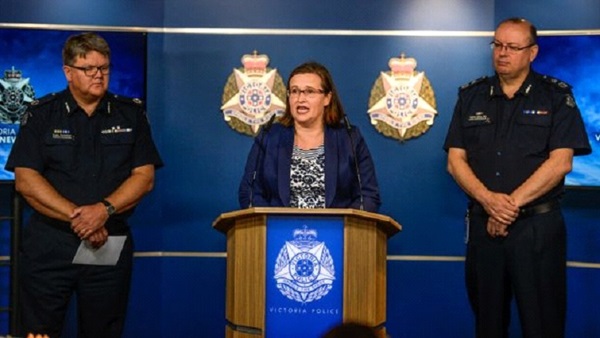
Assistant Commissioner Luke Cornelius, the policeman leading mammoth cultural change in the force, put it more bluntly. "He was treated terribly," Mr Cornelius said.
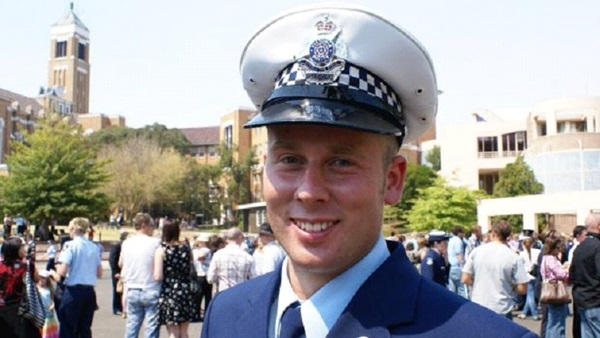
"He was the subject of homophobic behaviour that was back then and is absolutely now completely unacceptable.
"We are deeply sorry."
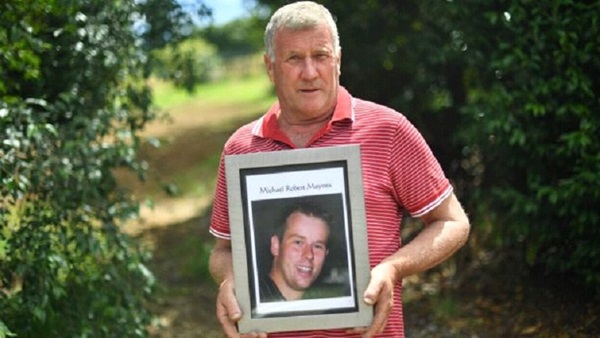
Mr Maynes' father Robert Maynes strongly believes that what his eldest son went through in the force contributed to his suicide and was the catalyst for his spiral into mental illness and drug-taking after he resigned.
"The police force started the ball rolling. They started it. Michael was never on drugs, never had an issue until he joined the police force and it just snowballed," he said.
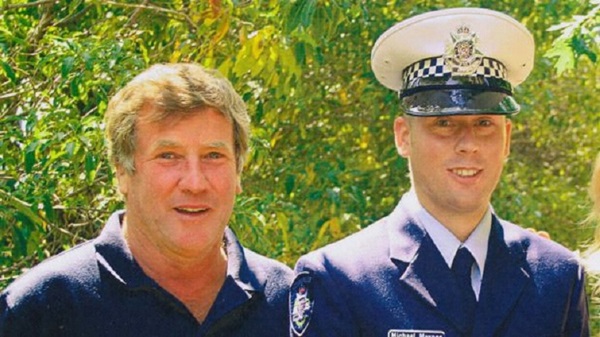
The Michael Maynes story is well known in Victoria Police's LGBTI community, some of whose members were serving police when homosexuality was decriminalised, when gay bashings occurred, and during the targeted raid of the Tasty Nightclub in Flinders Lane.
But we are not talking about the 1980s or even 1990s; the coronial and internal police investigation that followed the 30-year-old's death probed the culture Mr Maynes experienced in his short time in the force between 2008 and 2011.
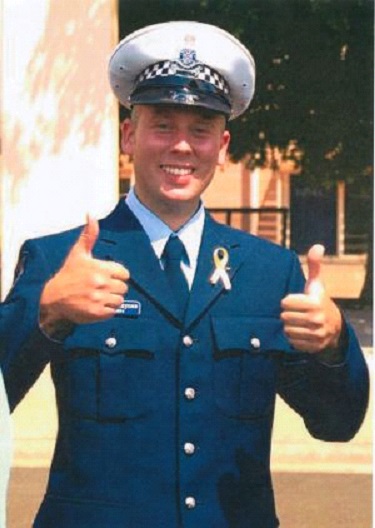
Mr Maynes joined the police force at 24, a job his father said he had dreamed of doing.
"He loved it. He absolutely loved it," Robert said.
"But it became torture. It was just torture for him every day going to work."
A senior policeman who acted as Mr Maynes' peer support officer told the coronial inquiry that what started in the outer eastern suburbs station as snide remarks like "That's a nice haircut. The boys down at Pride March will like that" morphed into daily references to "faggots", "poofters" or being gay.
"Although he did consider being more open, the relentless and intrusive curiosity of some members made him fear their reaction if he actually admitted his orientation," he said.
This, a gay policeman told The Age, is a common experience.
"If you're out and confident often the path is easier. If you're private, if you're not sure, if you're insecure, you'll be forced to come out."
In a diary the Mr Maynes kept, he wrote about a colleague calling the Pride March "sick" and "people don't need to see this shit". He also detailed another occasion where a senior constable had said: "You're gay, you've got AIDS. You're going to die alone." Neither of his diary entries could be substantiated.
There were more serious allegations. Another policeman who gave a statement said an information report was submitted from police in the eastern suburbs who said Mr Maynes was seen at a "known homosexual beat" in his private car.
The "valueless" report was considered "gratuitous and homophobic" by the police's internal watchdog, the Professional Standards Command, the policeman said.
Then, while Mr Maynes was still in the force, he drove through a roadside breath testing site in the eastern suburbs without stopping, telling colleagues he believed it was a traffic accident. He was issued with an infringement notice for failing to stop, but without the input or notification of Professional Standards, which is against police policy. He was then charged with refusing a breath test, despite Mr Maynes saying he was never asked to undergo one, in a move another policeman said was an "abuse of process". One member was disciplined over the allegation.
Overall, seven accused members were questioned after Mr Maynes' death, including a former Professional Standards investigator who lived in Mr Maynes' street the suburb over from the station. He was charged with unauthorised access to the police's internal database to look up Mr Maynes and his housemates 359 times. The case against him was later dropped and the officer resigned.
By the time Mr Maynes took sick leave in 2010 over the bullying, he had become a "problem" to police in his division and he transferred to Melbourne North, where there were other gay members.
He told the peer support officer he was "finally enjoying his work" and one of his new bosses described him as an "exuberant, quick-witted, and intelligent individual" who was respected by his peers professionally and socially.
"He started expressing delight in his work for the first time. He loved catching crooks," another policeman said.
It was when he was at Melbourne North that he received the infringement notices over the roadside breath test and Mr Maynes pleaded guilty and resigned.
"He steadfastly maintained that he had done nothing wrong but felt completely worn down by everything that had happened," the peer support officer said.
On his last day as a Victorian policeman, Mr Maynes wrote a farewell email to his colleagues at Melbourne North.
"My decision to leave Victoria Police was made more difficult due to the implausibly positive, passionate and supportive environment at Melbourne North," he wrote.
"I hope environments at stations like Melbourne North have the ability to become the dominant culture across the organisation."
Mr Maynes moved to the Northern Territory with a boyfriend and started to use the drug ice. In 2014, three-and-a-half years later, he took his own life.
In an unusually emotional statement, one of the senior officers Mr Maynes disclosed the bullying to said he was deeply distressed he didn't lodge a complaint without his consent.
"I wonder if that course would have resulted in a different outcome. I know that I cannot undo the decisions I made not to breach that request ... I was trying to engender Michael's trust in me and the system. Any trust that I was trying to build would have been destroyed had I lodged a complaint without consent," he wrote.
Mr Cornelius is leading Victoria Police's response to the Human Rights Commission's review into sexual discrimination, harassment and predatory behaviour in the force, which includes the vilification of LGBTI members.
In 2015, more than a thousand Victorian police participated in a national survey on LGBTI workplace inclusion. It found 70 per cent of respondents experienced some form of negative gay commentary or joke, 20 per cent had witnessed or were made aware of serious homophobic bullying at work, while 11 per cent said they experienced harassment because of their orientation in the past year.
Mr Cornelius said there were police still in Victoria who had a "jaundiced and inappropriate" views about the LGBTI people in the police force and the wider community.
"We have an absolute commitment to being very clear to our workforce at large that these behaviours won't be tolerated and these people will be held to account," he said. "There is no place for them in Victoria Police."
Mr Cornelius said Victoria Police expect to release an LGBTI inclusion strategy and action plan on the International Day Against Homophobia in May.
He said it was incumbent on all members to call out homophobia.
"These behaviours invariably happen within the hearing and in the presence of other people ... It needs to be called out in the moment. The individual that's doing it needs to be made to feel very uncomfortable and needs to be held to account," he said.
For support or advice, call Lifeline on 13 11 14 or beyondblue on 1300 22 4636.
Victoria Police's Welfare Services provide confidential support to all employees and their immediate families 24 hours a day on (03) 9247 3344.


GAY AND LESBIAN HATE CRIMES - BIBLIOGRAPHY AND RECOMMENDED READING LIST
